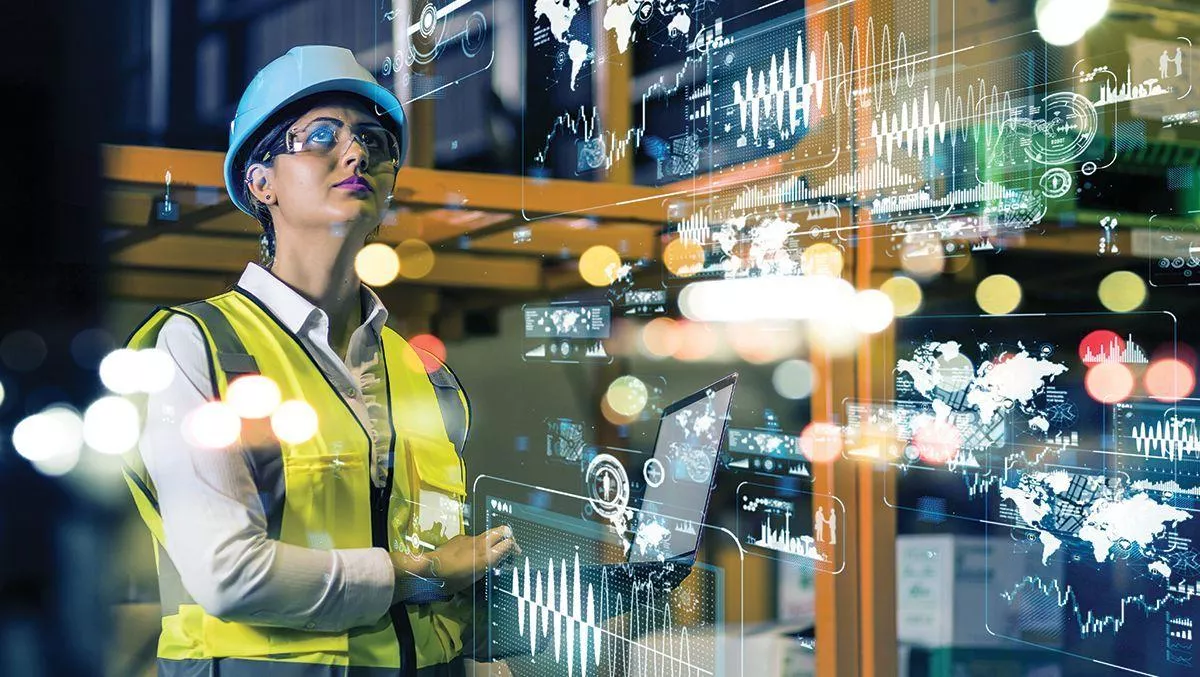There is a good chance you have heard a term called the Internet of Things (IoT). Broadly speaking, IoT is a general term for describing smart sensors and devices that are connected through a network provider like Spark.
For a business, IoT can help you save both time and money.
For example, a hospitality business could use a smart fridge to monitor and report temperature of their food in real-time, saving significant time in human resource as well as ensuring optimal temperature, preventing any food spoilage and waste. IoT sensors fitted to fridge/freezers are linked to a dashboard and this real time data can be viewed by staff to check food storage temperatures easily and alert them if something is wrong.
Or perhaps you're in the business of freight and logistics. A connected GPS device could work for operators to accurately report on delivery times through attaching GPS devices to vehicles that link to a dashboard which offers real time insights to track the delivery process, identify the exact speed of the vehicles, as well as obtain real-time information of the vehicle's route and location information in the event of an accident.
The possibilities are almost endless. The implementation is simple. But the payoff can be huge. At its core, IoT is about empowering better decision making and giving businesses the data to run more efficient operations. Very soon having IoT solutions implemented in your business will be as normal as having a health and safety plan. It's both practical and crucial.
How 5G will enable and accelerate IoT
The growth of IoT will be further enabled by 5G due to the lower latency and increased capacity, speed and efficiency that 5G offers.
But 5G is much more than just faster download speeds - 5G will allow users to connect more devices in areas where real-time performance is vital. 5G will be able to support up to 1 million devices per square kilometre!
One of the biggest benefits that 5G will bring to IoT is 'network slicing', which in simple terms is multiple networks which provide very different performance characteristics but share a common physical network infrastructure.
This will allow businesses such as city councils to connect devices like smart streetlights, smart bins and smart benches, together to enable them to manage 'smart cities'. While today, the different characteristics of these use cases would each require their own standalone networks, in the future all of them will be supported on a single shared 5G network through network slices.
How New Zealand businesses are using IoT in the real world
There are plenty of Kiwi success stories about companies that have embraced IoT with fantastic results. The Government's COVID-19 Innovation Acceleration Fund awarded $461,000 to the University of Auckland to develop a remote body temperature monitoring solution, while Sagen Software also received a grant to develop geofencing technology to manage COVID-19 within construction sites.
Another success story is Vector. Vector Metering provides metering services to 1.5 million businesses and homes across the country. It is in the process of shifting its meters over to Spark's IoT platform.
Why? Vector's chief operating officer metering and OnGas, Brenda Talacek, says the move is a way of modernising electricity and gas measuring systems.
She believes that people need to have greater visibility and control over how much energy they use - especially as Kiwis embrace energy efficiency (and lower power bills).
Vector Metering has built its business on the 2G network and while that enabled meters to be read remotely once a day, this move to the 4G network is a key building block for Vector Metering to provide innovative metering services to its electricity and gas retailer customers into the future. An always-connected 4G allows low latency data services (e.g. read on demand), which will result in Vector Metering's electricity retailer customers to provide a better customer experience for electricity consumers and underpin low voltage network insights.
The move to the 4G network is enabling Vector Metering to extend the life of its assets (and reduce future maintenance/replacement costs). The Spark 4G network will also allow Vector metering's advanced meter services to reach approximately 30,000 more electricity consumers.
In relation to Vector Metering's new gas smart metering product, the low power mode on 4G Cat- M1 has underpinned the business case for a battery-based metering solution, by facilitating 10+ years before a battery replacement.
Spark's network and technology director Mark Beder says that smart meters are not that new but bringing IoT connectivity to the table means that Vector can innovate more.
"For Vector, the world around them continues to digitally transform and they have been looking for a connectivity platform that will support the ongoing development of their metering business, opening up opportunities for other low carbon technologies such as the smart home applications and digital cities.
Through Vector's story, Beder says there is a key takeaway for all businesses: "It is important to move with technology by connecting to the latest generation so that they benefit from faster speeds, better responsiveness and added capacity.
To learn more, head along to Spark's website, contact your local Spark Business Hub, or Spark IoT Client Lead.



